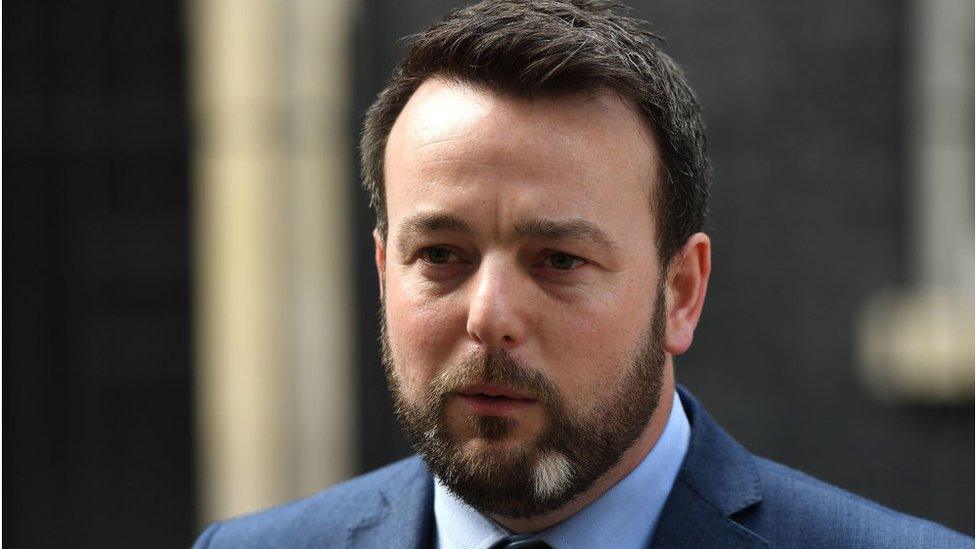Colum Eastwood: PM's veteran pledge could 'damage political progress'
- Published

The Foyle MP said there was "nothing vexatious" about seeking the truth
Any legal move by the government to protect Army veterans from prosecution in NI could damage political progress, Colum Eastwood has said.
The SDLP leader was responding to the prime minister's pledge to end prosecutions based on what he called "vexatious" allegations.
The promise featured in the Queen's Speech on Thursday.
It was welcomed by Justice for Northern Ireland Veterans, which seeks "freedom from historical legacy prosecutions".
However there was no detail on how it might apply to those who served in Northern Ireland.
"There is nothing vexatious about seeking truth, justice and accountability for those who lost loved ones," said Mr Eastwood.
'Damage political progress'
"A uniform should offer no shield to accountability before the law.
"Any move in this direction could damage the political progress we have made."
The DUP's Westminster leader welcomed the pledge
A spokesman for Justice for Northern Ireland Veterans group said veterans believed this was "a positive move" and that they "will be carefully watching any proposed legislation".
He added: "[We] stand ready to assist the prime minister and government in any way to enact any legislation that will bring justice and peace for our Northern Ireland veterans."
The DUP's new leader at Westminster, Jeffrey Donaldson, also welcomed the pledge by the prime minister and added that he was looking forward to seeing more detail.
The government said it strongly opposed service personnel and veterans being subjected to the "threat of vexatious litigation" in the form of repeated investigations and potential prosecutions arsing from historical operations, in a document published on Thursday.
It added that the government will bring forward comprehensive legislation as soon as possible to bring an end to the "unfair pursuit" of the armed forces.
The government also pledged to seek the prompt implementation of the Stormont House Agreement to provide reconciliation for victims and great "certainty for military veterans".
It also plans to tackle what it calls the "inappropriate application of the Human Rights Act to issues that occurred before it came into force".
Sinn Féin Mid Ulster MP Francie Molloy said there could be "no hierarchy of victims".
"The British government needs to stop dragging its feet and implement the legacy mechanisms, as agreed by the five main parties and both governments and publicly endorsed in last year's legacy consultation," he said.
"Sinn Féin will continue to oppose any attempts to discriminate against any section of victims of the conflict.
"British state forces who killed Irish citizens cannot be put above the law."
- Published14 December 2019
- Published19 December 2019
- Published17 July